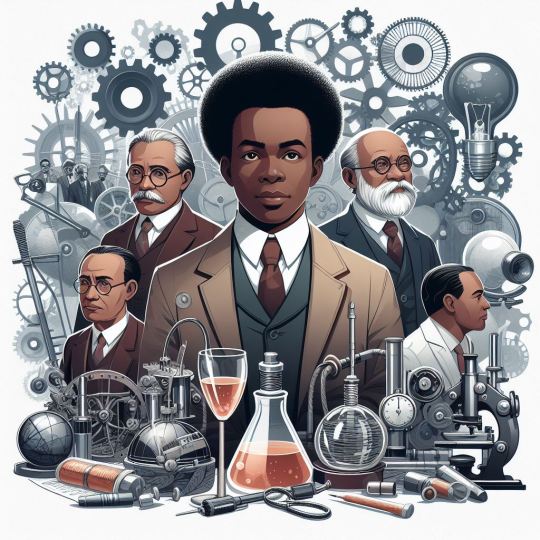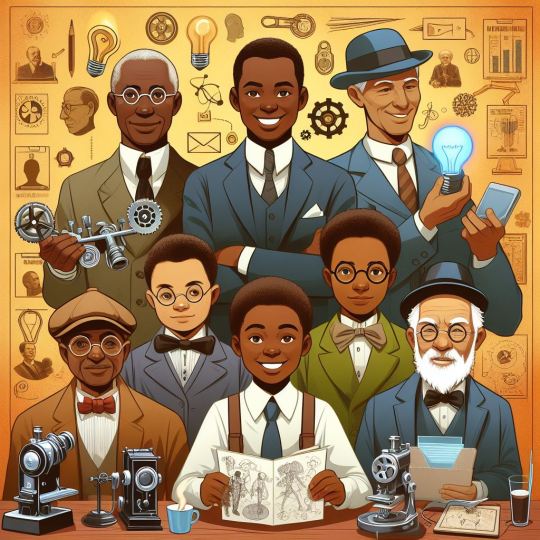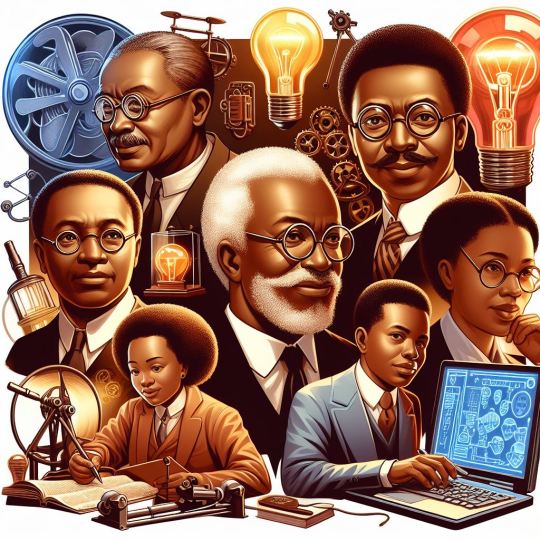#HEALTHCARE MANAGERS IN THE FACE OF INDUSTRY CHALLENGES
Explore tagged Tumblr posts
Text
THE EVOLVING ROLES AND RESPONSIBILITIES OF HEALTHCARE MANAGERS IN THE FACE OF INDUSTRY CHALLENGES
THE EVOLVING ROLES AND RESPONSIBILITIES OF HEALTHCARE MANAGERS IN THE FACE OF INDUSTRY CHALLENGES ABSTRACT The healthcare industry has faced significant challenges in recent years, including rising costs, staffing shortages, increasing patient demands, and the impacts of the COVID-19 pandemic. These challenges have transformed the roles and responsibilities of healthcare managers, who are now…
#careers with mba in healthcare management#entry level healthcare management jobs#entry level healthcare management positions#GET MORE HEALTHCARE MANAGEMENT PROJECT TOPICS AND MATERIALS#healthcare management#healthcare management and administration#healthcare management classes online#healthcare management consulting companies#healthcare management consulting firms#healthcare management degree#healthcare management jobs#healthcare management positions#healthcare manager jobs#healthcare manager positions#HEALTHCARE MANAGERS IN THE FACE OF INDUSTRY CHALLENGES#ma in healthcare management#master in business administration healthcare managemen#master of business administration healthcare management#mba and healthcare management#mba healthcare management degree#mba healthcare management jobs#remote healthcare management jobs#THE EVOLVING ROLES AND RESPONSIBILITIES OF HEALTHCARE MANAGERS IN THE FACE OF INDUSTRY CHALLENGES
0 notes
Text
Be Wary.
Check out comrade. Workwear6
It’s striking how interconnected these pieces are when examined critically. The articles suggest a confluence of corporate influence, judicial decision-making, and public sentiment being weaponized to maintain the status quo.
1. Insurance Industry Pressure: The DOJ’s involvement in cases like these appears influenced by industry interests, raising concerns about justice being strategically manipulated. According to Ken Klippenstein’s reporting, insurance companies pressured prosecutors to pursue Luigi Mangione’s case, describing it as a deterrent for others. This influence extends beyond legal decisions and into public discourse, ensuring dissenters are marginalized. As one insider noted, “The goal is to make it too risky for others to even think about challenging the industry.”
2. Judicial Connections: Luigi Mangione, regardless of the allegations, deserves a fair trial. Instead, we see a system riddled with conflicts of interest. Judge Katherine Parker, whose ties to the insurance industry are undeniable, presides over the case, raising serious ethical concerns. According to comments on The Robing Room, Parker has been described as “biased and dismissive,” with one commenter stating, “Her rulings consistently favor powerful corporate interests over the rights of individuals.”
3. Political and Corporate Interests: Figures like Mayor Eric Adams, who has faced scrutiny for alleged favoritism toward corporate donors, and Jessica Tisch, a key figure tied to UnitedHealth Group (UHG), represent the convergence of politics and corporate power. Tisch’s protection of UHG as a benefactor highlights how deeply embedded these ties are. Meanwhile, dissenting voices such as Comrade Workwear, who spoke out against systemic inequities, were silenced when their accounts were disabled—another example of how speaking truth to power is systematically punished.
4. Collaborative Power Structures: The relationship between pharmaceutical companies like Pfizer and insurance giants like UHG illustrates a broader issue. These corporations collaborate through intermediaries like Pharmacy Benefit Managers (PBMs) to set drug prices and control access. This partnership often prioritizes profits over patients, leaving individuals to shoulder the financial and health burdens. As Senator Bernie Sanders once pointed out, “The pharmaceutical and insurance industries are the root cause of America’s dysfunctional and unjust healthcare system.”
5. Labeling Resistance as Extremism: The famous quote, “Give them bread and circuses, and they will never revolt,” captures the current dynamic perfectly. Legitimate grievances—whether about deregulation or systemic inequities—are reframed as extremist or disruptive. For example, public dissent against unfair healthcare practices is often labeled as radical or anti-progress, distracting from the true injustices.
This is not an issue of race or political affiliation—it’s about fundamental human rights. When will we stop yelling at ourselves and start yelling at them? When will we demand accountability for the corporate, political, and judicial systems working hand-in-hand to stifle fairness and justice?
As the evidence shows, the erosion of fairness and equity is a deliberate strategy driven by those in power. The broader question is this: How long will we let ourselves be distracted while they consolidate power and undermine the principles of democracy and equity? The time to refocus is now.

#free luigi#brian thompson#tiktok#luigi mangione#us health system#fypツ#fyp#eric adams#new york#us politics#writing#writers on tumblr#jessica tisch#television
17 notes
·
View notes
Text
What is Unlimited Liability for Negligence?
Understanding the concept of liability is crucial for anyone engaged in business or professional services. One key concept to grasp is "unlimited liability," which refers to situations where a party can be held fully responsible for damages caused by negligence without any monetary cap. In contrast, limited liability structures restrict the financial exposure of the liable party. This article explores the implications of unlimited liability, particularly in cases of negligence, and the impact it can have on businesses and individuals.
Understanding Unlimited Liability
Unlimited liability can have significant financial and personal consequences. If your business operates under a structure with unlimited liability, you may be required to cover all losses or damages resulting from negligent actions. This lack of financial limitation means personal assets might be at risk to satisfy legal claims.
For example, a business held liable for negligence resulting in a severe accident could face damages that far exceed its income. In such cases, the business owner’s personal finances may also be at stake. This underscores the importance of understanding your business’s liability structure, especially in industries where negligence can have serious consequences, such as healthcare, construction, or services.
The Concept of Negligence
Negligence occurs when someone fails to exercise reasonable care, resulting in harm to another person. To prove negligence in a legal context, four key elements must typically be established:
Duty of Care: The responsible party had a legal obligation to act in a specific way.
Breach of Duty: They failed to meet that obligation.
Causation: Their breach directly caused harm.
Damages: Actual harm or losses occurred.
In a business setting, negligence can arise from defective products, substandard services, or other lapses. If a court determines negligence and your business operates under unlimited liability, you could be responsible for covering the full extent of the damages.
Risks of Unlimited Liability
Operating under unlimited liability poses various risks, especially for small businesses or startups. Here are some critical considerations:
Financial Exposure: Unlimited liability means there’s no cap on what you could be held accountable for, potentially leading to personal financial ruin.
Insurance Challenges: Securing adequate liability insurance can be difficult. Insurers may hesitate to cover businesses with high liability risks.
Impact on Operations: Fear of liability may lead to overly cautious business decisions, stifling growth and innovation.
Reputation Damage: Legal disputes over negligence can harm your reputation, even if claims are unfounded, potentially resulting in client loss.
How to Protect Your Business
To mitigate the risks of unlimited liability, consider these strategies:
Incorporation: Forming a corporation or LLC can protect personal assets by separating them from business liabilities.
Liability Insurance: Comprehensive insurance tailored to your industry can provide a safety net for negligence claims.
Risk Management: Regularly assess and address potential risks through training, audits, and adherence to best practices.
Clear Contracts: Draft clear agreements that outline responsibilities and liabilities. Legal counsel can help ensure these documents are enforceable.
Navigating the complexities of liability laws can be challenging, especially when facing negligence claims. A personal injury attorney can help you understand your legal exposure, evaluate your insurance coverage, and build a defense if necessary.
Contact a Tucson Personal Injury Attorney
Unlimited liability for negligence can have serious consequences for your business and personal assets. Protect yourself by understanding your liability risks and taking proactive measures. If you’re facing a negligence claim or need guidance on liability matters, contact a Tucson personal injury attorney to discuss your options and safeguard your future.
7 notes
·
View notes
Text
Best Nursing Assignment Help Service
Nursing is one of the most challenging yet rewarding professions in the healthcare industry. However, the path to becoming a nurse isn't easy. Nursing students often find themselves overwhelmed by the rigorous coursework, clinical practice, and the countless assignments that come with the territory. These assignments play a critical role in their education, helping them develop the knowledge and skills necessary to provide quality patient care.
But what happens when the pressure becomes too much? Many students turn to nursing assignment help services to ease the burden. In this guide, we’ll explore why nursing assignments are so important, the challenges students face, and how nursing assignment help can be a valuable resource.
The Importance of Nursing Assignments
Nursing assignments aren’t just busy work. They are carefully designed to help students grow academically and professionally. Through assignments, students learn how to apply theoretical knowledge to practical scenarios, preparing them for the real-world challenges they'll face in clinical settings.
These tasks also serve as a tool for educators to assess critical thinking, decision-making, and problem-solving skills—key traits of any competent nurse. Furthermore, nursing assignments contribute to a deeper understanding of patient care, medical procedures, and ethical considerations.
Common Types of Nursing Assignments
Nursing students encounter various types of assignments throughout their education, each focusing on different aspects of nursing practice.
Case Studies: These assignments require students to analyze patient scenarios and develop care plans. They help in understanding patient care from diagnosis to treatment.
Research Papers: Research assignments encourage students to engage with the latest medical literature and contribute to evidence-based practice.
Care Plans: Developing individualized care plans allows students to apply theoretical knowledge in practical scenarios, ensuring patients receive tailored care.
Reflective Journals: Reflective writing helps students think critically about their experiences in clinical practice, encouraging personal and professional growth.
Challenges Students Face in Nursing Assignments
Nursing assignments come with their own set of challenges. Balancing academic work with clinical practice, family obligations, and personal life is a struggle for many students.
Time Management Issues: Nursing students often juggle tight schedules, making it difficult to complete assignments on time.
Understanding Complex Medical Terms: Nursing is a specialized field with its own language. Mastering medical terminology can be daunting, especially for those new to the field.
Critical Thinking Development: Transitioning from textbook knowledge to real-life application requires strong critical thinking skills, which many students struggle to develop.
APA Referencing and Formatting: Academic writing standards, like APA formatting, are strict and can be tricky for students unfamiliar with them.
Why Seek Nursing Assignment Help?
Given these challenges, it’s no wonder that many nursing students seek outside help to complete their assignments.
Managing Workload: Nursing assignment help services can alleviate the pressure, allowing students to focus on other aspects of their studies, such as clinical practice.
Improving Grades: These services provide expertly written assignments, often resulting in better grades.
Learning Through Expert Assistance: By working with professionals in the field, students gain valuable insights that enhance their learning.
Time for Clinical Practice: More time can be allocated to hands-on learning, which is crucial for any nursing student.
Features of a Good Nursing Assignment Help Service
When looking for nursing assignment help, there are a few key features to consider:
Expert Writers with Nursing Background: Look for services that employ writers with nursing or healthcare backgrounds. This ensures the assignments are accurate and relevant.
Timely Delivery: Meeting deadlines is crucial in nursing school, and a good service will always deliver on time.
Plagiarism-Free Work: Originality is key, and the best services will provide plagiarism-free assignments.
24/7 Customer Support: Look for services that offer around-the-clock support for any last-minute questions or changes.
Customization and Adherence to Guidelines: Every assignment is different, and a good service will tailor the work to meet your specific requirements.
How Nursing Assignment Help Services Work
Most nursing assignment help services follow a simple process:
Submit Your Requirements: Provide detailed information about your assignment, including the topic, word count, deadline, and any special instructions.
Work with Expert Writers: The service will assign your task to a qualified writer who understands the subject.
Review the Draft: You’ll receive a draft for review and have the opportunity to request revisions if necessary.
Final Submission: After making revisions, the final assignment is delivered to you, ready for submission.
Tips for Choosing the Best Nursing Assignment Help Service
Not all services are created equal, so here are some tips to help you choose the right one:
Look for Expertise in Nursing Field: Ensure the service has writers with healthcare qualifications.
Check for Reviews and Testimonials: Student reviews can give you a good sense of a service’s reliability and quality.
Consider Pricing and Budget: While you want quality work, make sure the service fits within your budget.
Ensure They Offer Revisions: Revisions are crucial to getting the best final product.
The Ethical Considerations in Using Assignment Help
Using nursing assignment help services ethically is important. These services should be seen as a learning tool rather than a shortcut to success.
Ensuring it’s Used as a Learning Tool: Use the assignments provided as a study guide to improve your understanding of the subject.
Avoiding Plagiarism: Always ensure the work is original and properly referenced.
Fostering Independent Learning: Nursing students should use these services to complement their learning, not replace it.
How to Write a Nursing Assignment on Your Own
While assignment help services are great, learning to complete assignments on your own is crucial for academic and professional growth.
Understanding the Question: Break down the assignment question and identify what is being asked.
Researching the Topic: Use credible sources like peer-reviewed journals and textbooks.
Developing an Outline: Plan your assignment structure before writing to ensure clarity.
Writing Clearly and Concisely: Avoid unnecessary jargon and keep your writing precise.
Citing Properly: Follow the required citation style to avoid plagiarism.
Common Mistakes in Nursing Assignments
Many students make similar mistakes when completing their nursing assignments:
Failing to Answer the Question: Always ensure your work directly addresses the assignment prompt.
Poor Research: Relying on non-credible sources weakens the quality of the assignment.
Inadequate Referencing: Ensure you cite all your sources correctly to avoid plagiarism.
Not Proofreading: Spelling and grammar mistakes can easily lower your grade.
How to Improve Your Nursing Assignment Writing Skills
Improving your nursing assignment writing skills takes time and practice:
Practice Regularly: The more you write, the better you’ll get.
Seek Feedback: Always ask for feedback from professors or peers to help you improve.
Use Online Tools: Grammar checkers, citation generators, and other tools can help you refine your writing.
Benefits of Collaborating with Peers on Nursing Assignments
Collaborating with classmates can be a great way to tackle nursing assignments:
Sharing Knowledge: Group discussions can lead to better understanding of complex topics.
Different Perspectives: Collaboration exposes you to different ideas and approaches.
Improving Problem-Solving Skills: Working together helps develop better solutions to nursing challenges.
Nursing Assignment Help and Academic Integrity
Maintaining academic integrity is essential, even when using nursing assignment help services.
Maintaining Integrity in Academic Work: Always use the service as a tool for learning, not just for completing tasks.
When Help Becomes Cheating: Ensure that you’re still doing your own work and using help services ethically.
Conclusion
Nursing assignments are an integral part of the educational process, preparing students for the complex world of healthcare. While they can be challenging, nursing assignment help services offer a valuable resource for those who need assistance. However, it’s important to balance external help with personal effort to ensure true learning and academic integrity.
FAQs
What are the most common nursing assignments?
Case studies, research papers, care plans, and reflective journals are the most common nursing assignments.
How do nursing assignment help services maintain academic integrity?
Reputable services provide original content and encourage students to use the assignments as learning tools, not as a way to cheat.
How can I ensure my nursing assignment is plagiarism-free?
Use a plagiarism checker and ensure all sources are properly cited.
What should I do if I struggle with referencing in my nursing assignment?
You can use online citation tools or seek help from your institution’s writing center.
Are nursing assignment help services ethical? Yes, as long as they are used to supplement learning and not to replace personal effort.
#homework help#homework answer#custom essay paper#assignment help#carspotting#wealth#sports car#university#tutor#nursing#assignment help free#assignmentwriting#assignment services#i understand the assignment#assignmentexperts#Nursing Assignment Help#Help with Nursing Assignments#Do My Nursing Assignment#Complete My Nursing Assignment
9 notes
·
View notes
Text
Pest Control Market Insights Health and Hygiene Awareness Driving Preventive Solutions
The pest control market is a dynamic industry influenced by evolving consumer demands, regulatory frameworks, and technological advancements. This article delves into key insights about the pest control market, highlighting factors driving growth, challenges, and opportunities for innovation.

Pest Control Market Insights: Urbanization Driving Demand
Rapid urbanization has led to increased pest infestations in cities, requiring effective management strategies. Dense housing developments and waste mismanagement provide fertile grounds for pests, pushing urban consumers and municipalities to seek professional pest control services.
Pest Control Market Insights: Focus on Sustainable Solutions
Consumers and businesses are increasingly favoring environmentally friendly pest control options. The demand for biopesticides, organic repellents, and integrated pest management (IPM) techniques has surged, reflecting a shift toward sustainability within the industry.
Pest Control Market Insights: Technological Advancements in Pest Control
Technology is transforming pest control methods. Innovations such as AI-powered pest monitoring, IoT devices for real-time detection, and drone-based pest spraying systems are enhancing efficiency and precision, catering to both residential and industrial needs.
Pest Control Market Insights: Agriculture Sector and Pest Management
Agricultural pest control is critical for ensuring food security and maximizing crop yields. Precision agriculture, biological pest control methods, and automated pest monitoring systems are becoming integral to managing pests in farming.
Pest Control Market Insights: Commercial Sector Expansion
The commercial pest control market is growing significantly as industries like hospitality, food processing, and healthcare prioritize pest management for regulatory compliance and customer safety. Commercial facilities are investing heavily in regular pest inspections and preventive measures.
Pest Control Market Insights: Health and Hygiene Awareness
Heightened awareness about health risks associated with pests, such as disease transmission and allergic reactions, is driving consumers to opt for preventive pest control measures. The focus on hygiene has intensified in the wake of global pandemics.
Pest Control Market Insights: Challenges in Rural Areas
While urban areas have easy access to pest control services, rural regions face challenges such as limited service providers and lack of awareness. Addressing these gaps presents a significant growth opportunity for the pest control market.
Pest Control Market Insights: Regulatory Landscape and Compliance
Strict regulations governing pesticide use and environmental protection are reshaping the pest control industry. Companies must invest in compliance and innovation to meet regulatory standards while delivering effective solutions.
Pest Control Market Insights: Mergers and Strategic Alliances
Mergers, acquisitions, and collaborations among pest control companies are driving market consolidation. Strategic alliances help businesses expand their service offerings, adopt new technologies, and enhance their market presence.
Conclusion: Unlocking Potential in the Pest Control Market
The pest control market offers immense growth opportunities, driven by urbanization, health awareness, and technological advancements. However, addressing challenges such as sustainability, rural access, and regulatory compliance is essential. By focusing on innovation, eco-friendly solutions, and strategic collaborations, the pest control industry can achieve long-term growth and success.
#Pest Control Market#Pest Control Market trends#Pest Control#pest control company#pest regretevator#pest control services
4 notes
·
View notes
Text
Black inventors






























From Perplexity:
Famous black inventors have significantly contributed to various fields, from everyday household items to groundbreaking technological advancements. Here are some notable figures:
George Crum (1824-1914): A chef who is credited with inventing the potato chip in 1853[1].
Frederick McKinley Jones (1893-1961): Developed refrigeration equipment for trucks, trains, ships, and planes, receiving over 40 patents. His invention, the Thermo King, revolutionized the food and medical transport industries[1].
Granville T. Woods (1856-1910): Accumulated almost 60 patents, improving railroad functioning. Notably, he invented the induction telegraph system for train communication[1].
George Washington Carver (1864-1943): An agricultural chemist who developed 518 products from peanuts and sweet potatoes, including ink, dye, soap, and synthetic rubber[1].
Madam C.J. Walker (1867-1919): Became the first African American woman self-made millionaire by creating a line of hair products for African American women[1].
Garrett Morgan (1877-1963): Invented the traffic signal and a safety hood that served as a prototype for the gas mask[1].
Mary Beatrice Davidson Kenner: Patented the sanitary belt in 1957, a significant advancement in women's health and hygiene[1].
Thomas L. Jennings (1791–1859): The first African American to receive a U.S. patent, for a dry-cleaning process[4].
Patricia Bath (1942-2019): Invented a laser cataract treatment, becoming the first African American female doctor to receive a medical patent[4].
Mark Dean (1957-present): Holds over 20 patents, including contributions to the creation of the color PC monitor and the first gigahertz chip[4].
Elijah McCoy (1844-1929): Known for his invention of the automatic lubricator for oiling steam engines, leading to the phrase "the real McCoy" to denote something authentic[4].
These inventors have left a lasting impact on society, demonstrating ingenuity and perseverance in the face of challenges.
Citations: [1] https://www.oprahdaily.com/life/work-money/g30877473/african-american-inventors/ [2] https://www.parents.com/kids/education/world-changing-black-inventors-that-every-kid-should-know-about/ [3] https://www.black-inventor.com [4] https://www.biography.com/inventors/g46697619/famous-black-inventors [5] https://en.wikipedia.org/wiki/List_of_African-American_inventors_and_scientists
From Gemini (formerly Bard):
20 Famous Black Investors with Short Descriptions:
Dr. Shirley Jackson: First Black woman to earn a doctorate in nuclear physics, invested in research and development for the U.S. Department of Defense.
Robert F. Smith: Founded Vista Equity Partners, a private equity firm with over $85 billion in assets under management. Known for his philanthropic endeavors.
Oprah Winfrey: Media mogul and investor, known for her investments in cable channels, production companies, and Weight Watchers.
Udayan I. Lekhraj: Founded CMG Partners, a private equity firm specializing in healthcare investments. Advocate for diversity and inclusion in venture capital.
Catherine Hughes: Founded Urban One, a media company serving the African American community. First Black woman to chair a publicly traded company in the U.S.
Rodney Bryant: Co-founded JUST Capital, a firm that measures and incentivizes corporations to prioritize stakeholder capitalism.
Ellen Johnson Sirleaf: Former President of Liberia, Nobel Peace Prize winner. Focused on economic development and investment in her country.
Ronald Lauder: CEO of Estee Lauder Companies, known for his investments in the beauty industry and philanthropic work.
Charles R. Bronfman: Chairman of The Seagram Company Ltd., invested in various industries including entertainment, real estate, and philanthropy.
John Rogers Jr.: Founded Ariel Investments, a mutual fund company with over $28 billion in assets under management. Advocate for responsible investing.
Marc Morial: Former mayor of New Orleans, currently president of the National Urban League. Focused on economic empowerment of Black communities.
Ronald Watkins: Founding CEO of Watkins Investing Group, invests in real estate and businesses within the Black community.
Melody Hobson: President and CEO of Ariel Investments, known for her work on financial literacy and diversity in boardrooms.
Aisha Evans: Founded BE Capital, a venture capital firm focused on Black and Latinx tech entrepreneurs.
Kevin Hart: Comedian and investor, known for his investments in production companies, streaming platforms, and sports teams.
Jay-Z: Rapper and entrepreneur, known for his investments in music streaming, sports teams, and venture capital funds.
Will Smith: Actor and investor, known for his investments in production companies, media platforms, and venture capital funds.
Serena Williams: Tennis champion and investor, known for her investments in venture capital funds focused on women and diverse founders.
Rihanna: Singer and entrepreneur, known for her investments in beauty brands, fashion lines, and technology startups.
LeBron James: Basketball player and investor, known for his investments in media companies, production companies, and technology startups.
Please note: This list is not exhaustive and can be debated in terms of individual importance and impact.
Reading List on Black Inventors:
Black Inventors: Lives That Mattered by Darlene R. Medford
Hidden Figures: The American Dream and the Untold Story of the Black Women Mathematicians Who Helped Win the Space Race by Margot Lee Shetterly
Lifting the Veil: Celebrating the Unsung Heroes of Black History by Michael Hill
Lost Genius: The Forgotten Black Inventors Who Changed the World by Dennis Freeman
Pioneering Women in American Mathematics: From Agnes Scott to Emmy Noether by Pamela Prochazka
Black Inventors in Science and Technology by Shirley J. Smith
A Colored Man's Reminiscences of James M. Whitfield: With Recollections of the Early Struggles of Colored Men in Boston by Wilbur H. Siebert
Inventing the Future: Black Inventors in Science and Technology by Geneva Gay
African Americans in Science, Math, and Invention by Darlene R. Medford
Black Inventors in the United States by Darlene R. Medford
This list offers a variety of books covering different periods and areas of innovation by Black inventors. Consider exploring further based on your specific interests.
I hope this information is helpful!
#african american history#black history month#black history month 2024#dalle3#midjourney#black inventors#blackhistorymonth#africanamericanhistory#afrofuturism#solar punk#steampunk
19 notes
·
View notes
Text
Why PMP Certification Training is Essential for Project Managers in 2025

With the growth in technology, the demands of project managers to deliver their services with precision, efficiency, and strategic insight have tremendously increased. The heightening demand for skilled project management professionals is a result of businesses facing digital transformation, economic challenges, and factors affecting team dynamics. This is where PMP certification training is a game-changer. At MindCypress, we understand the changing dynamics of the industry and thus offer innovative training that helps professionals stay competitive and competent in 2025 and beyond.
Key Benefits of Project Management Professional Certification for Career Growth
Getting a Project Management Professional or PMP certification is not only an achievement but a skyrocket in one's career. The certification, which is recognized across the globe, guarantees a project manager's project leadership and direction in any industry using a standardized methodology alongside the Project Management Institute (PMI) framework.
Some of the benefits are:
Earning Potential is improved: PMI's recent salary surveys indicate that PMP-certified professionals earn much more, at least 20% over non-certified counterparts.
Global Recognition: It is now recognized and respected in more than 200 nations, making it a great asset for professionals trying to make it globally.
Career Free: PMP certification applies to all industries like IT, construction, healthcare, and finance, bringing a wider scope of mobility into job opportunities for most.
Stronger Professional Network: it allows connection with other PMP professionals for opportunities in learning, mentorship, and collaboration.
MindCypress PMP Certification Training is tailored for aspiring and experienced project managers, keeping in mind real-life scenarios, agile methodologies, and experiential learning.
How Project Management Training Enhances Efficiency and Leadership Skills
Besides gaining promotion opportunities, project management training imparts tools to improve the immediate performance of employees. Project managers are those bold individuals who expect the most from their crew and optimize value by their genius vision.
PMP training helps you in:
Strategic Planning & Execution: The PMP certification provides advanced techniques in planning, risk management tools, and quality control techniques, all of which will enable you to ensure project success from inception to end.
Improved Communication: You learn how to manage stakeholders, facilitate communication across departments, and accomplish team goals in alignment with organizational objectives.
Enhanced Leadership Abilities: PMP training hones skills in motivating teams, resolving conflicts, and managing performance—skills crucial when performing the task of leading a diverse team.
Data-Driven Decision Making: Learn the art of working out well-informed decisions through tools like Earned Value Management (EVM), Gantt Charts, and Agile dashboards.
MindCypress offers end-to-end project management training delivered by expert instructors, through interactive sessions, and with access to the latest study materials for full preparation to pass the PMP exam and perform well in your job.
Conclusion
In 2025, the business landscape will continue to reward those who are prepared, agile, and strategically skilled. Investing in PMP certification training through MindCypress is more than just a credential—it's a commitment to excellence, growth, and leadership in your profession. Whether you're an aspiring project manager or an experienced professional looking to elevate your career, PMP certification is a powerful step toward long-term success.
Choose MindCypress to guide you through your certification journey and position yourself as a top-tier project management professional in a world that values innovation, precision, and leadership.
Resource: https://mindcypress.com/blogs/project-management/why-pmp-certification-training-is-essential-for-project-managers-in-2025
2 notes
·
View notes
Text
Ceramic Blasting Beads: A Key Technology for Enhancing Fatigue Resistance in Medical Device Metal Components
In the modern medical device industry, the reliability and durability of metal components directly impact patient safety and treatment efficacy. From implantable devices to surgical instruments, from diagnostic equipment to therapeutic devices, metal component fatigue failure remains a significant challenge for medical device manufacturers and quality control managers. Ceramic blasting beads, as an advanced surface treatment technology, are revolutionizing the fatigue resistance performance of medical device metal components. This article will explore in depth how ceramic blasting beads enhance the fatigue resistance of medical device metal components and the special value of this technology in the medical field.
Metal Fatigue Issues in Medical Devices
Severity of Fatigue Failure
In the medical device field, metal component fatigue failure can lead to catastrophic consequences:
Implant fractures may require emergency revision surgeries
Surgical instrument failures during use may endanger patients' lives
Diagnostic equipment malfunctions may lead to misdiagnosis or delayed treatment
Therapeutic device failures may interrupt treatment plans
FDA data indicates that approximately 25%-30% of medical device recall events are related to metal component fatigue failures, causing serious impacts on patient safety and healthcare institutions.
Unique Challenges Facing Medical Device Metal Components
Medical device metal components face unique challenges:
Biocompatibility requirements: Materials must be non-toxic, harmless, and not cause immune responses
Strict sterilization conditions: Must withstand high temperature, high pressure, radiation, and other sterilization methods
Complex physiological environments: Long-term exposure to corrosive body fluids
Cyclic loading conditions: Such as orthopedic implants bearing periodic physiological loads
Zero-tolerance requirements: Medical devices cannot allow any risk of failure
These challenges make medical device metal components face more severe fatigue issues than general industrial applications.
Technical Characteristics of Ceramic Blasting Beads and Advantages in Medical Applications
Ceramic blasting beads offer unique application advantages in the medical device field:
Good biocompatibility: Materials like zirconium oxide and aluminum oxide have passed ISO 10993 biocompatibility testing
No residual contamination: Will not leave particles on component surfaces that could cause infection
High surface cleanliness: Can thoroughly remove surface machining marks and contaminants
Controllable surface roughness: Can adjust surface topological structure according to different medical device requirements
Non-magnetic: Will not affect the use of magnetic-sensitive medical equipment such as MRI
Medical-grade ceramic blasting beads typically have the following technical parameters: Technical Parameter Typical Specification Significance in Medical Applications Sphericity >98% Ensures surface treatment uniformity Purity >99.9% Avoids chemical contamination Hardness Mohs 9 Suitable for treating hard materials such as titanium alloys Particle size range 20-150μm Can be used for precision medical devices Surface finish Ra 0.1-0.8μm Meets different interface contact requirements
Mechanisms by Which Ceramic Blasting Beads Enhance Medical Device Fatigue Resistance
1. Formation of Residual Compressive Stress Layer
When ceramic blasting beads impact the metal surface at high speed, they form a residual compressive stress layer on the surface. This mechanism is particularly important for medical devices because:
The compressive stress layer effectively prevents micro-crack initiation and propagation in fluid environments
It improves the resistance of medical-grade metals such as titanium alloys and stainless steel to corrosion fatigue
It is especially important for implants that bear alternating loads (such as orthopedic screws, bone plates, artificial joints)
Research shows that appropriate ceramic blasting treatment can form a compressive stress layer with a depth of 0.1-0.2mm on medical-grade titanium alloy surfaces, increasing fatigue life by 100%-200%.
2. Microstructure Optimization
In medical device applications, microstructure optimization has special significance:
Grain refinement improves the metal's yield strength, enhancing implant resistance to deformation
Increased dislocation density reduces stress concentration phenomena in physiological environments
Changed microstructure facilitates cell attachment and tissue integration (crucial for osseointegration)
Microstructure optimization can significantly improve the safety factor of medical devices, especially in the field of long-term implants.
3. Surface Topography Control
For medical devices, surface topography control has dual significance:
Mechanical aspect: Appropriate surface roughness reduces fatigue crack sources
Biological aspect: Optimized surface microstructure promotes cell attachment and biological integration
Different types of medical devices require different surface topographical structures: Medical Device Type Recommended Surface Roughness (Ra) Purpose Orthopedic implants 1.0-2.0μm Promote osseointegration Joint replacements 0.05-0.2μm Reduce friction and wear Cardiovascular stents 0.3-0.8μm Improve blood compatibility Dental implants 1.5-2.5μm Enhance tissue bonding Surgical instruments 0.1-0.4μm Improve corrosion resistance and cleanliness
4. Surface Bioactivity Regulation
Unique to medical applications, ceramic blasting can also regulate metal surface bioactivity:
Change surface energy and wettability, affecting protein adsorption and cell attachment
Adjust the chemical composition and structure of the surface oxide layer
Provide an ideal foundation for subsequent surface functionalization treatments (such as hydroxyapatite coating)
This bioactivity regulation both improves device biocompatibility and enhances metal fatigue resistance, forming a dual safeguard.
Ceramic Blasting Process Optimization in Medical Device Production
Medical devices have requirements for surface treatment far higher than general industrial applications, and ceramic blasting processes must be conducted under strictly controlled conditions:
Key Process Parameters
Process Parameter Medical-Grade Recommended Range Special Considerations Blasting pressure 0.3-0.5MPa Adjust according to device size and wall thickness Blasting distance 80-150mm Uniformity control Blasting time 20-90s Avoid excessive treatment causing precision loss Bead specification 20-150μm Determined by device precision and surface requirements Coverage requirement >98% Ensure no fatigue-weak zones
Special Process Control Points
Contamination-free process environment: Clean room grade blasting environment to prevent particle contamination
Batch quality control: 100% surface inspection to ensure zero defects
Parameter validation: Validate blasting parameters through fatigue testing
Sterilization compatibility: Ensure blasted surfaces can withstand subsequent sterilization processes
Traceability: Complete process recording, complying with medical device regulatory requirements
Medical Device Application Case Studies
Case 1: Titanium Alloy Spinal Fixation System
Challenge: Spinal fixators bear complex cyclic loads in the body, with fatigue failure being the main issue.
Solution: 45-75μm zirconium oxide ceramic blasting treatment of titanium alloy spinal screws and connecting rods.
Results:
Fatigue strength increased by 36%
Failure rate reduced from 2.3% to 0.4%
Patient revision surgery rate decreased by 75%
Product 5-year survival rate improved to 98.7%
Case 2: Stainless Steel Orthopedic Surgical Instruments
Challenge: Orthopedic surgical instruments require repeated use and sterilization, facing serious stress corrosion fatigue issues.
Solution: 50-100μm aluminum oxide ceramic blasting treatment, forming a uniform surface compressive stress layer.
Results:
Instrument service life extended 2.5 times
Sterilization cycle resistance improved by 40%
Surface corrosion resistance increased by 65%
Repair and replacement costs reduced by 58%
Case 3: Cobalt-Chrome Alloy Artificial Hip Joints
Challenge: Artificial hip joints require excellent fatigue strength and biocompatibility.
Solution: Two-stage ceramic blasting: coarse blasting (125μm) to form a compressive stress layer, fine blasting (45μm) to optimize surface topographical structure.
Results:
Fatigue strength improved by 43%
Friction coefficient reduced by 28%
Metal ion release decreased by 67%
Implant service life increased from 12 years to over 20 years
Case 4: Nitinol Cardiovascular Stents
Challenge: Cardiovascular stents work in a pulsating environment, requiring extremely high fatigue resistance and blood compatibility.
Solution: Ultra-fine (20-45μm) zirconium oxide blasting, optimizing surface morphology and oxide layer.
Results:
Stent fatigue life increased to over 400 million cycles
Thrombosis risk reduced by 32%
Restenosis rate decreased by 26%
Product safety incident reports reduced by 81%
Quality Control and Regulatory Compliance
For medical device manufacturers and quality control managers, ceramic blasting treatment is not just a technical means to improve product performance but also a key step in ensuring regulatory compliance:
FDA and NMPA Compliance Points
Process validation: Required according to FDA 21 CFR 820.75 and relevant NMPA regulations
Surface characteristic testing: Including ASTM F86 surface inspection and ISO 4287 surface roughness testing
Fatigue testing requirements: Compliance with standards such as ASTM F1801, ISO 14242
Biocompatibility assessment: Comprehensive biological evaluation according to ISO 10993-1
Risk management: Incorporating blasting treatment into ISO 14971 risk management system
Key Quality Control Testing Methods
Test Item Test Method Acceptance Criteria Surface roughness Surface profilometer Within design specifications ±10% Residual stress X-ray diffraction Surface compressive stress >200MPa Coverage Microscopic inspection >98% Surface defects Electron microscopy No cracks, peeling, or sharp edges Metal ion release ICP-MS Below ISO standard limits Accelerated fatigue testing According to ISO standards Achieves 5 times design life or more
Cost-Benefit Analysis: Medical Device Perspective
In the medical device field, the cost-benefit of ceramic blasting technology needs to be evaluated from multiple levels:
Direct Cost Benefits
Reduced product recall costs: Each medical device recall costs an average of $3-7 million; improving fatigue performance can significantly reduce recall risks
Decreased warranty claims: Fatigue-related failure claims reduced by 65%-80%
Extended product life: Implant service life extended by 50%-100%, reducing revision surgery rates
Enhanced market competitiveness: Product reliability becomes a key selling point, increasing brand value
Indirect Cost Benefits
Accelerated regulatory approval: Reliable fatigue data support speeds up registration and approval processes
Improved physician and patient satisfaction: Reduces medical disputes caused by device failures
Better insurance coverage: Higher reliability devices more easily obtain insurance coverage
Enhanced corporate reputation: Avoids negative publicity due to product fatigue failures
Return on investment analysis shows that in the high-end medical device field, investment in ceramic blasting technology typically pays back within 18-24 months, with long-term ROI exceeding 300%.
Frequently Asked Questions (FAQs)
Does ceramic blasting treatment affect the sterilization efficacy of medical devices?
No. On the contrary, appropriate ceramic blasting treatment can improve the surface microstructure, reducing microbial attachment points and enhancing sterilization effectiveness. Research shows that optimized ceramic blasting treatment can improve the Sterility Assurance Level (SAL) of medical device surfaces.
Do different types of medical-grade metals require different ceramic blasting materials?
Yes, different metals require different blasting materials and parameters:
Titanium alloys: Zirconium oxide beads recommended (matching hardness, avoiding embedding)
Stainless steel: Can use aluminum oxide or zirconium oxide beads
Cobalt-chrome alloys: Zirconium oxide beads recommended (reducing surface contamination)
Nitinol: Must use ultra-fine zirconium oxide beads (avoiding damage to superelastic properties)
What post-processing steps are required after ceramic blasting treatment?
Medical devices typically require the following post-processing steps:
Ultrasonic cleaning (removing all residual particles)
Passivation treatment (forming a stable oxide layer)
Electrochemical polishing (for certain applications)
Surface functionalization (if special biological characteristics are needed)
Sterilization packaging (preventing contamination)
How does ceramic blasting affect the service life of medical devices?
By increasing fatigue strength and reducing corrosion sensitivity, ceramic blasting can significantly extend medical device service life:
Implantable devices: Life extended by 50%-100%
Surgical instruments: Usage cycle count increased by 150%-200%
Diagnostic equipment: Metal component failure interval extended 3-5 times
How is the consistency and reliability of the ceramic blasting process validated?
The medical device industry uses the following methods to validate process consistency:
Process Validation Studies (PVS)
Statistical Process Control (SPC)
Failure Mode and Effects Analysis (FMEA)
Accelerated Life Testing (ALT)
Real-time stability monitoring and data trend analysis
Future Development Trends
Ceramic blasting technology in the medical device field is developing in the following directions:
Biofunctionalized blasting materials: Ceramic beads containing antibacterial elements or bioactive factors
Gradient blasting technology: Achieving different surface characteristics in different areas of the same component
Intelligent monitoring blasting systems: Real-time quality control based on machine vision and AI
Personalized parameter optimization: Adjusting implant surface characteristics according to specific patient needs
Hybrid processes combined with 3D printing: Providing optimal surface treatment for complex geometries
Conclusion
Ceramic blasting bead technology provides significant improvements in fatigue resistance for medical device metal components, which has special significance in the medical field. Through forming residual compressive stress layers, optimizing microstructures, controlling surface topography, and regulating bioactivity, ceramic blasting technology not only improves the safety and reliability of medical devices but also extends service life, reduces patient risk, and decreases healthcare costs.
For medical device manufacturers and quality control managers, understanding and correctly applying ceramic blasting technology is a key strategy for improving product quality, ensuring regulatory compliance, and enhancing market competitiveness. As medical devices develop toward smaller size, more functionality, and greater personalization, ceramic blasting technology will continue to play an irreplaceable role, providing more reliable safeguards for patient safety and treatment efficacy.

2 notes
·
View notes
Text
Mobile App Development Company Jaipur | VolanSoft
Transform Your Business with Jaipur's Leading Mobile App Development Company

In today's digital age, having a powerful mobile presence isn't just an option – it's a necessity. As a premier mobile app development company in Jaipur, VolanSoft Technologies understands the unique challenges businesses face in creating impactful mobile solutions. We've spent years helping local businesses, startups, and enterprises transform their digital presence through innovative mobile applications. Our journey as a mobile app development company in Jaipur began with a simple mission: to help businesses connect with their customers through seamless mobile experiences. Today, we're proud to have served over 150+ clients across various industries, from e-commerce to healthcare, delivering solutions that drive real business growth.
The Mobile App Revolution in Pink City
Jaipur's tech landscape has evolved dramatically in recent years. As businesses encirclement digital transformation, the demand for quality mobile app development services has soared. We've witnessed firsthand how local businesses have transformed their operations through custom mobile applications. For instance, one of our clients, a traditional Rajasthani handicraft retailer, saw a 150% increase in sales after launching their mobile app.
Why Choose a Local Mobile App Development Partner?
While there are countless app development companies worldwide, partnering with a local mobile app development company in Jaipur offers unique advantages. Our team understands the local market dynamics and cultural nuances that can make or break your app's success. We're not just developers – we're your neighbors who speak your language and understand your business challenges.
Our Development Process: Where Innovation Meets Tradition
At VolanSoft, we blend modern development methodologies with traditional business values. Our process begins with understanding your vision through personal meetings at our Jaipur office. We then craft a detailed roadmap that aligns with your business goals. Our experienced developers use the latest technologies while maintaining the personal touch that Jaipur businesses are known for.
Custom Solutions for Every Business
Whether you need an Android app, iOS app, or both, our team delivers solutions tailored to your specific needs. We've helped local restaurants create order management apps, developed inventory tracking solutions for textile manufacturers, and built customer engagement platforms for retail businesses. Each project is unique, and we treat it as such.
The VolanSoft Difference
As an established Top mobile app development company in Jaipur, we pride ourselves on:
Deep understanding of local market needs
Transparent communication throughout the development process
Competitive pricing without compromising quality
Post-launch support and maintenance
Regular updates and performance optimization
Beyond App Development
Our expertise extends beyond just mobile apps. As a comprehensive digital solutions provider, we offer e-commerce development, Shopify development, and custom web applications. This integrated approach ensures your mobile app works seamlessly with your entire digital ecosystem.
Looking Ahead: The Future of Mobile Apps in Jaipur
The mobile app landscape in Jaipur is evolving rapidly. We're seeing increased demand for AI-integrated apps, IoT solutions, and blockchain applications. As your local technology partner, we stay ahead of these trends to ensure your business remains competitive in the digital space.
Ready to Transform Your Business?
If you're looking to develop a mobile app that truly resonates with your audience, let's have a conversation. Visit our office in Jaipur, and let's discuss how we can turn your app idea into reality. With VolanSoft Technologies, you're not just getting a mobile app development company – you're gaining a long-term technology partner committed to your success.
3 notes
·
View notes
Text
Tech Stocks Plunge as DeepSeek Disrupts AI Landscape

Market Reaction: Nvidia, Broadcom, Microsoft, and Google Take a Hit On January 27, the Nasdaq Composite, heavily weighted with tech stocks, tumbled 3.1%, largely due to the steep decline of Nvidia, which plummeted 17%—its worst single-day drop on record. Broadcom followed suit, falling 17.4%, while ChatGPT backer Microsoft dipped 2.1%, and Google parent Alphabet lost 4.2%, according to Reuters.
The Philadelphia Semiconductor Index suffered a significant blow, plunging 9.2%—its largest percentage decline since March 2020. Marvell Technology experienced the steepest drop on Nasdaq, sinking 19.1%.
The selloff extended beyond the US, rippling through Asian and European markets. Japan's SoftBank Group closed down 8.3%, while Europe’s largest semiconductor firm, ASML, fell 7%.
Among other stocks hit hard, data center infrastructure provider Vertiv Holdings plunged 29.9%, while energy companies Vistra, Constellation Energy, and NRG Energy saw losses of 28.3%, 20.8%, and 13.2%, respectively. These declines were driven by investor concerns that AI-driven power demand might not be as substantial as previously expected.
Does DeepSeek Challenge the 'Magnificent Seven' Dominance? DeepSeek’s disruptive entrance has sparked debate over the future of the AI industry, particularly regarding cost efficiency and computing power. Despite the dramatic market reaction, analysts believe the ‘Magnificent Seven’—Alphabet, Amazon, Apple, Meta, Microsoft, Nvidia, and Tesla—will maintain their dominant position.
Jefferies analysts noted that DeepSeek’s open-source language model (LLM) rivals GPT-4o’s performance while using significantly fewer resources. Their report, titled ‘The Fear Created by China's DeepSeek’, highlighted that the model was trained at a cost of just $5.6 million—10% less than Meta’s Llama. DeepSeek claims its V3 model surpasses Llama 3.1 and matches GPT-4o in capability.
“DeepSeek’s open-source model, available on Hugging Face, could enable other AI developers to create applications at a fraction of the cost,” the report stated. However, the company remains focused on research rather than commercialization.
Brian Jacobsen, chief economist at Annex Wealth Management, told Reuters that if DeepSeek’s claims hold true, it could fundamentally alter the AI market. “This could mean lower demand for advanced chips, less need for extensive power infrastructure, and reduced large-scale data center investments,” he said.
Despite concerns, a Bloomberg Markets Live Pulse survey of 260 investors found that 88% believe DeepSeek’s emergence will have minimal impact on the Magnificent Seven’s stock performance in the coming weeks.
“Dethroning the Magnificent Seven won’t be easy,” said Steve Sosnick, chief strategist at Interactive Brokers LLC. “These companies have built strong competitive advantages, though the selloff served as a reminder that even market leaders can be disrupted.”
Investor Shift: Flight to Safe-Haven Assets As tech stocks tumbled, investors moved funds into safer assets. US Treasury yields fell, with the benchmark 10-year yield declining to 4.53%. Meanwhile, safe-haven currencies like the Japanese Yen and Swiss Franc gained against the US dollar.
According to Bloomberg, investors rotated into value stocks, including financial, healthcare, and industrial sectors. The Vanguard S&P 500 Value Index Fund ETF—home to companies like Johnson & Johnson, Procter & Gamble, and Coca-Cola—saw a significant boost.
“The volatility in tech stocks will prompt banks to reevaluate their risk exposure, likely leading to more cautious positioning,” a trading executive told Reuters.
OpenAI’s Sam Altman Responds to DeepSeek’s Rise OpenAI CEO Sam Altman acknowledged DeepSeek’s rapid ascent, describing it as “invigorating” competition. In a post on X, he praised DeepSeek’s cost-effective AI model but reaffirmed OpenAI’s commitment to cutting-edge research.
“DeepSeek’s R1 is impressive, particularly given its cost-efficiency. We will obviously deliver much better models, and competition is exciting!” Altman wrote. He hinted at upcoming OpenAI releases, stating, “We are focused on our research roadmap and believe
3 notes
·
View notes
Text
Calling All Women in Healthcare and Medicine.

As an aspiring writer and advocate for women's empowerment, I am embarking on an exciting blog project that aims to shed light on the incredible journeys of women in the healthcare and medicine sector. I invite all women in this field to come forward and share their stories, as your experiences deserve to be celebrated and shared with the world.
Why Share Your Story?
Your story matters. By sharing your experiences, challenges, triumphs, and insights, you have the power to inspire and empower others who may be considering a career in healthcare or medicine. Your unique perspective can provide guidance, encouragement, and a sense of camaraderie to those who may face similar obstacles or doubts. Moreover, your story can help break down barriers, challenge stereotypes, and promote gender equality within the healthcare industry.
What to Share:
Your story can encompass a wide range of topics, including but not limited to:
1. Personal Motivation: What inspired you to pursue a career in healthcare or medicine? Was there a specific event or person that influenced your decision?
2. Educational Journey: Share your experiences during your education and training. What challenges did you face, and how did you overcome them? Were there any mentors or role models who played a significant role in your development?
3. Professional Triumphs: Highlight your proudest moments and achievements in your career. Whether it's a groundbreaking research project, a successful surgery, or a positive impact on a patient's life, your triumphs deserve recognition.
4. Overcoming Obstacles: Discuss the challenges you encountered as a woman in the healthcare or medicine sector. Did you face any gender-related biases or discrimination? How did you navigate these obstacles and emerge stronger?
5. Work-Life Balance: Share your insights on maintaining a healthy work-life balance in a demanding profession. How do you manage your personal life while excelling in your career?
How to Participate:
If you are a woman working and/or studying in the healthcare or medicine sector, I invite you to share your story for this project. You can contribute by sending an email to [email protected] with the subject line "Women in Healthcare Blog Project." Please include a brief introduction about yourself, your profession, and then, most importantly, your story.
Please indicate clearly if you would like your story to be anonymous
By sharing your story, you can inspire and empower others, while also promoting gender equality within the industry. Your experiences matter, and your voice deserves to be heard. Together, let's celebrate the achievements of women in healthcare and medicine and pave the way for future generations of aspiring professionals.
#studyblr#studyspiration#study aesthetic#studyspo#writerslife#a levels#medblr#doctors#medicine#health#surgery#healthcare#women in science#women in stem#women in medicine#stemblr#stem student#stem#stem academia#chemistry#biology#study hard#study tips#study space#studying#student#on writing#writeblr#gender#gender equality
52 notes
·
View notes
Text
Fair Trade
By going beyond accreditation practices, consumers and companies can reach those at the bottom of the global social production ladder. Nonetheless, these efforts require purchasers to take personal responsibility for their impact, rather than relying solely on certifications. Simply by being more thoughtful and ethical in our sourcing practices, we have a huge opportunity to create brighter futures for all people and their families throughout the supply chain.
https://borgenproject.org/fair-trade-product-markets/
Despite many well-intentioned consumer attitudes, fair trade product markets frequently feature marketing strategies that conjure up imperialistic images [...]
[...] In products marked as fair trade, the certification might only apply to the product’s raw materials, rather than the full process of production. [...] A 2014 study theorizes that these practices are somewhat effective, “although on a comparatively modest scale relative to the size of national economies"
Social Media conversations about Fair Trade Practices:
[From user seriousxdelirium] - Like almost all other labels for coffee, it's absolutely useless. It only applies to growers large enough to afford the fees, and is not regulated well enough to make meaningful impact on the industry. If you really care about this sort of thing, do some research and develop an understanding of what you think a fair price is for farmers, and ask roasters what they paid for that coffee. Most good roasters are willing to be transparent about that sort of thing, and even publish transparency reports where you get a breakdown of the entire transaction.
From user Ramakrishna Surathu:
[...] Here are some reasons why fair trade may not always be as fair as it seems [...]
1. Market Access and Power Imbalances: Fair trade initiatives often focus on small-scale producers in developing countries, who may face challenges in accessing global markets and negotiating fair prices. Power imbalances within supply chains, influenced by factors such as geography, politics, and market dynamics, can limit the ability of producers to fully benefit from fair trade practices.
2. Certification Costs and Barriers: Obtaining fair trade certification can be costly and time-consuming for producers, particularly small-scale farmers and artisans with limited resources. Certification fees, auditing expenses, and compliance with standards may pose financial barriers and administrative burdens, leading some producers to forego certification altogether.
3. Limited Impact on Poverty Alleviation: While fair trade aims to reduce poverty and improve livelihoods, its impact may be limited by systemic barriers and structural inequalities. Addressing poverty requires broader social, economic, and political interventions beyond the scope of fair trade alone, such as access to education, healthcare, land rights, and infrastructure.
4. Market Volatility and Price Instability: Fair trade prices are often based on predetermined minimums, which may not fully reflect fluctuations in global market prices. Producers may be exposed to market volatility and fluctuations in demand, which can impact their income and livelihoods, particularly in commodity markets subject to price instability.
5. Complexity of Supply Chains: Fair trade supply chains can be complex and challenging to navigate, especially in regions with limited infrastructure and logistical challenges. Ensuring compliance with fair trade standards, maintaining transparency, and traceability throughout the supply chain can require significant investment in monitoring and management systems.
[...] Some manufacturers also use tricks. For example, some products do not explain exactly which part of a product was produced fairly. Another trick is to increase the percentage of "fair" ingredients by subtracting out the water content. The credibility is of course "fair watered".
[...] The statement here should not be that fair trade is useless, but one should always question things or understand them better and not just be blindly guided by seals in the purchase decision. Since this works so well, manufacturers like to use such seals or make one up themselves.
[...] rather than cutting out the middle man, and offering farmers a more direct compensation for their work, Fair Trade still facilitates a level of bureaucracy that supports an uneven distribution of revenue.
[...] The price point that separates Fair Trade produce from the rest of the market is often significant enough that lower-income households cannot afford to budget for it. This means that Fair Trade cannot reach mass markets in a way that would really effect wide-scale change, and instead serves as a token gesture to alleviate the guilt of middle-class consumers.
[...] [premium pricing coffee] is a worthy move if the coffee is of a high quality, but if it is not of sufficient quality to merit this price tag, then it risks turning consumers away from Fair Trade produce, and further impeding its reach to mass markets [...]
Fair Trade is a concept worth embracing, but first it must prioritize effective and transparent processes of production and distribution. What Fair Trade aims to achieve is admirable, but what it could potentially achieve is far greater [...]
#having another crisis last night while researching organic mattresses and#considering which companies to buy from that are organic certified AND run with ethical business practices#damn near impossible to purchase anything sans explaintation#my greens#fair trade#sustainability#sustainable economy#economy#green link#direct trade#farming#agriculture#luxury items#premium prices
11 notes
·
View notes
Text
PeopleSoft Cedar Consulting: Revolutionizing Enterprise Solutions with Expertise and Innovation
In the world of enterprise software solutions, PeopleSoft remains a key player, providing organizations with robust tools for managing human resources, finances, supply chains, and more. However, to fully harness the power of PeopleSoft and tailor it to a company's unique needs, businesses often turn to specialized consulting services. One such provider making waves in this space is Cedar Consulting, a firm that offers top-tier expertise in PeopleSoft and helps organizations optimize their use of this powerful software suite.
Understanding PeopleSoft: A Quick Overview
PeopleSoft, originally developed by PeopleSoft Inc., is a comprehensive suite of applications that help businesses manage a variety of operations, from human resource management to financials, supply chain management, and customer relationship management. PeopleSoft has evolved over time, being acquired by Oracle in 2005, but it remains one of the most widely used ERP (Enterprise Resource Planning) solutions worldwide.
Organizations across various sectors continue to rely on PeopleSoft for its scalability, flexibility, and advanced features. However, to ensure that the platform is implemented effectively and aligns with specific business goals, PeopleSoft consulting has become a critical component for success.
What Makes Cedar Consulting Stand Out?
Comprehensive PeopleSoft Services Cedar Consulting offers a wide range of services centered around PeopleSoft, including:
Implementations: Cedar assists organizations in smoothly deploying PeopleSoft applications, ensuring that the systems are configured to meet specific organizational requirements.
Upgrades: As PeopleSoft continually evolves, businesses need to stay up to date with the latest versions and features. Cedar provides seamless upgrade services to help clients transition to newer versions without disrupting business operations.
Customization and Configuration: Cedar’s experts understand that each business has unique needs. They customize PeopleSoft applications to ensure they work optimally for individual clients, improving functionality and integration with other systems.
Support and Optimization: Cedar’s consultants offer ongoing support to help businesses maximize their PeopleSoft investments, addressing issues as they arise and optimizing system performance over time.
Integration: PeopleSoft often needs to integrate with other enterprise systems. Cedar provides integration services to ensure smooth data flow and seamless operations across different software platforms.
Expert Knowledge and Experience Cedar Consulting distinguishes itself through its team of professionals with extensive PeopleSoft experience. Whether it's implementing new PeopleSoft modules, upgrading existing systems, or troubleshooting complex technical issues, Cedar’s consultants bring a wealth of expertise to the table. This deep knowledge ensures that clients receive not only a working solution but one that is efficient, scalable, and cost-effective.
Tailored Solutions One of Cedar Consulting's core strengths is its ability to provide customized solutions. They take the time to understand the unique challenges faced by each client and design strategies that align with specific business objectives. Cedar is particularly adept at making complex PeopleSoft systems more user-friendly and efficient, helping businesses achieve their full potential.
Proven Track Record of Success Cedar Consulting has built a reputation for delivering results. Their success stories span a wide range of industries, from higher education and healthcare to financial services and government. Organizations trust Cedar for their proven ability to optimize and enhance PeopleSoft systems, driving both operational efficiency and strategic growth.
Focus on Long-Term Relationships Cedar Consulting is not just about implementing a system and walking away. Their approach centers on building long-term relationships with clients. They provide ongoing support and consulting, ensuring that PeopleSoft systems continue to meet the evolving needs of the business. This commitment to customer success is what makes Cedar a preferred consulting partner for many organizations.
Benefits of Partnering with Cedar Consulting for PeopleSoft Solutions
Enhanced Efficiency and Productivity Cedar’s deep expertise ensures that businesses get the most out of their PeopleSoft systems, helping streamline workflows and improve productivity. Whether it’s simplifying user interfaces or automating routine tasks, Cedar’s solutions enable organizations to operate more efficiently.
Reduced Costs By optimizing the existing PeopleSoft system, Cedar helps businesses reduce operational costs. Moreover, their experience with system upgrades and integrations ensures that businesses avoid costly mistakes and delays in deployment.
Scalability and Flexibility Cedar Consulting’s solutions are designed to scale with the organization as it grows. Their custom solutions ensure that businesses can add new functionalities or integrate with new systems as needed, without requiring major overhauls.
Improved Decision-Making Cedar’s data-driven approach helps organizations leverage PeopleSoft’s robust reporting and analytics features. By improving access to critical data, businesses can make more informed decisions, whether it’s about financial planning, human resources, or supply chain management.
Ongoing Support Cedar Consulting provides continuous support to its clients, ensuring that their PeopleSoft systems stay up to date, secure, and effective over time. This proactive support helps organizations avoid costly downtime and disruptions.
Conclusion
As businesses continue to navigate the complexities of modern enterprise operations, the need for specialized PeopleSoft consulting services becomes ever more apparent. Cedar Consulting has established itself as a trusted partner for organizations seeking to unlock the full potential of their PeopleSoft systems. With a focus on tailored solutions, expert knowledge, and long-term customer success, Cedar Consulting stands out as a leader in the PeopleSoft consulting space, driving operational efficiency and delivering lasting value for clients.
#amazon web services#amazon sierra#oracle cloud consulting#aws cloud consultant#oracle consulting services#oracle public sector cloud#managed cloud services#oracle consulting#peoplesoft aws hosting#top oracle implementation partners
2 notes
·
View notes
Text
The Story of a Prosperous Rajasthan: Col Rajyavardhan Rathore’s Vision

Rajasthan, the land of majestic palaces, golden deserts, and vibrant culture, is scripting a new chapter in its history — a story of prosperity and growth. With strong leadership and a vision for the future, Col Rajyavardhan Rathore has been at the forefront of this transformation. His dedication to development, innovation, and inclusivity has laid the foundation for a thriving and self-reliant Rajasthan.
A Legacy of Resilience and Valor
Rajasthan’s journey toward prosperity is rooted in its rich history of courage and resilience. From the valor of Maharana Pratap to the sacrifices of its brave soldiers, the state has always stood tall in the face of challenges. Today, the same indomitable spirit is driving its march toward progress.
The Foundation of Prosperity
Cultural Wealth: Rajasthan’s heritage is not just a source of pride but also a driver of tourism and global recognition.
Natural Resources: With its vast solar potential and mineral reserves, Rajasthan is poised to become a leader in renewable energy and industry.
Col Rajyavardhan Rathore: A Leader Shaping Rajasthan’s Future
Col Rathore’s leadership embodies a unique blend of vision, strategy, and commitment. As an Olympian and Member of Parliament, he understands the importance of discipline and teamwork in achieving goals. His initiatives reflect a comprehensive approach to development, ensuring that every citizen benefits from the state’s growth.
Key Pillars of a Prosperous Rajasthan
1. Infrastructure Development
Rajasthan’s transformation begins with its backbone: infrastructure.
Roadways and Highways: Improved connectivity has opened up opportunities for trade and tourism.
Smart Cities: Urban areas like Jaipur, Udaipur, and Jodhpur are becoming hubs of modern living and economic activity.
Rural Development: Focus on electrification, water supply, and healthcare has improved the quality of life in villages.
2. Economic Empowerment
Col Rathore’s efforts have been instrumental in boosting Rajasthan’s economy.
MSME Growth: Policies aimed at empowering small and medium enterprises have created jobs and strengthened local industries.
Investment Attraction: Events like the Rising Rajasthan Global Investment Summit have brought in significant investments from global players.
3. Renewable Energy Revolution
Solar Power: With projects like the Bhadla Solar Park, Rajasthan is leading India’s renewable energy drive.
Green Jobs: Renewable energy projects are creating employment while ensuring sustainable growth.
4. Tourism as an Economic Driver
Rajasthan’s rich cultural heritage and natural beauty have been harnessed to boost tourism.
Eco-Tourism and Desert Safaris: Promoting sustainable tourism in regions like Jaisalmer and Ranthambore.
Infrastructure for Visitors: Improved facilities have enhanced the state’s global appeal.
5. Education and Skill Development
Quality Education: Initiatives to establish schools and colleges ensure access to quality education.
Skill Training: Programs to equip the youth with skills for emerging industries like IT, manufacturing, and tourism.
A Vision for Inclusive Growth
Col Rathore’s vision of prosperity is inclusive, ensuring that no region or community is left behind.
Women Empowerment: Schemes to provide education, healthcare, and financial independence to women.
Support for Farmers: Modern irrigation techniques, subsidies, and market access are transforming agriculture in the state.
Focus on Tribal and Rural Communities: Targeted programs are uplifting marginalized groups.
Challenges on the Path to Prosperity
Rajasthan’s transformation is not without challenges, including water scarcity, climate change, and rural poverty. However, proactive leadership and innovative solutions have ensured steady progress:
Water Management: Projects like the Eastern Rajasthan Canal Project aim to address water shortages.
Sustainability Initiatives: Emphasis on green energy and eco-friendly policies mitigates environmental concerns.
A Prosperous Future Awaits
The story of Rajasthan’s prosperity is one of courage, vision, and relentless effort. Under the leadership of Col Rajyavardhan Rathore, the state is embracing modernity while staying rooted in its heritage. With continued focus on infrastructure, education, and sustainable development, Rajasthan is not just a symbol of bravery but also a beacon of progress in India.
2 notes
·
View notes
Text
Medical Coding and Billing Training

Transorze results offers an exceptional Medical Coding and Billing Training Program in Kerala, India, designed to equip scholars with the chops necessary for a successful career in healthcare assistance. There’s a blog script that highlights the crucial features and benefits of this training program.
Course Overview
Medical billing and coding programs prepare students for careers in the healthcare industry, focusing on the essential functions of coding healthcare services and managing billing processes. These roles are critical for ensuring that healthcare providers receive accurate reimbursement from insurance companies.
Key Learning Objectives
Students will learn to:
Understand Medical Terminology: Build and interpret medical terms relevant to various healthcare settings.
Apply Coding Systems: Utilize coding systems such as ICD-10-CM, CPT, and HCPCS to accurately code diagnoses and procedures.
Navigate Insurance Processes: Gain insights into health insurance principles, including the claims process and regulatory compliance (HIPAA).
Utilize Software Tools: Develop proficiency in electronic health records (EHR) and medical billing software, preparing them for practical applications in real-world scenarios.
Prepare for Certification Exams: Students are typically prepared to take national certification exams like the Certified Billing and Coding Specialist (CBCS), Certified Professional Coder (CPC), or Certified Coding Associate (CCA) upon course completion
Unleash Your Future with Transorze Medical Coding and Billing Training
Are you looking to launch a satisfying career in the healthcare sector? Look no further than Transorze results, the leading provider of medical rendering training in Kerala. Our comprehensive program is acclimatized to meet the requirements of aspiring coders and billers, icing you gain the moxie needed to exceed in this high- demand field
Why Choose Transorze for Medical Coding Training?
CPC- Certified Coaches Our preceptors are n't only largely educated but also CPC- certified professionals. They bring a wealth of knowledge from the field of medical coding, icing you admit top- notch education from assiduity experts
Hands- On Training At Transorze, we believe in literacy by doing. Our training includes hands- on experience and exposure to real- life scripts, preparing you for the challenges you'll face in your career.
Tailored literacy Material We give largely delved and streamlined training accoutrements that feed to the rearmost assiduity norms. This ensures that you're well- equipped with applicable knowledge and chops
100 Placement Assistance We're committed to your success
Transorze offers comprehensive placement backing, helping you secure a position in estimable healthcare associations upon course completion.
Access to rearmost AAPC Accoutrements Our scholars profit from access to the rearmost coding accoutrements from the American Academy of Professional Coders( AAPC), which enhances their literacy experience and prepares them for instrument examinations
Course Highlights
In- Depth Class Our class covers essential motifs similar as medical language, rendering systems( ICD- 10, CPT, HCPCS), compliance regulations, and more.
Flexible Learning Options We offer both online and offline classes, allowing you to choose a mode that fits your schedule and literacy style.
probative literacy Environment With a focus on pupil satisfaction, our faculty provides individualized attention to insure that every pupil thrives
Career openings
Upon completing our Medical Coding and Billing Training, graduates can pursue colorful places in the healthcare assiduity, including
Medical Coder
Medical Biller
Health Information Technician
Compliance Officer
Join Us moment!
Do n’t miss out on this occasion to elevate your career prospects. Enroll in Transorze Medical Coding and Billing Training program moment and take the first step towards a fulfilling career in healthcare. For further information or to register, visit our website at Transorze results or communicate us directly.
3 notes
·
View notes
Text
Non-fiction books that explore AI's impact on society - AI News
New Post has been published on https://thedigitalinsider.com/non-fiction-books-that-explore-ais-impact-on-society-ai-news/
Non-fiction books that explore AI's impact on society - AI News
.pp-multiple-authors-boxes-wrapper display:none; img width:100%;
Artificial Intelligence (AI) is code or technologies that perform complex calculations, an area that encompasses simulations, data processing and analytics.
AI has increasingly grown in importance, becoming a game changer in many industries, including healthcare, education and finance. The use of AI has been proven to double levels of effectiveness, efficiency and accuracy in many processes, and reduced cost in different market sectors.
AI’s impact is being felt across the globe, so, it is important we understand the effects of AI on society and our daily lives.
Better understanding of AI and all that it does and can mean can be gained from well-researched AI books.
Books on AI provide insights into the use and applications of AI. They describe the advancement of AI since its inception and how it has shaped society so far. In this article, we will be examining recommended best books on AI that focus on the societal implications.
For those who don’t have time to read entire books, book summary apps like Headway will be of help.
Book 1: “Superintelligence: Paths, Dangers, Strategies” by Nick Bostrom
Nick Bostrom is a Swedish philosopher with a background in computational neuroscience, logic and AI safety.
In his book, Superintelligence, he talks about how AI can surpass our current definitions of intelligence and the possibilities that might ensue.
Bostrom also talks about the possible risks to humanity if superintelligence is not managed properly, stating AI can easily become a threat to the entire human race if we exercise no control over the technology.
Bostrom offers strategies that might curb existential risks, talks about how Al can be aligned with human values to reduce those risks and suggests teaching AI human values.
Superintelligence is recommended for anyone who is interested in knowing and understanding the implications of AI on humanity’s future.
Book 2: “AI Superpowers: China, Silicon Valley, and the New World Order” by Kai-Fu Lee
AI expert Kai-Fu Lee’s book, AI Superpowers: China, Silicon Valley, and the New World Order, examines the AI revolution and its impact so far, focusing on China and the USA.
He concentrates on the competition between these two countries in AI and the various contributions to the advancement of the technology made by each. He highlights China’s advantage, thanks in part to its larger population.
China’s significant investment so far in AI is discussed, and its chances of becoming a global leader in AI. Lee believes that cooperation between the countries will help shape the future of global power dynamics and therefore the economic development of the world.
In thes book, Lee states AI has the ability to transform economies by creating new job opportunities with massive impact on all sectors.
If you are interested in knowing the geo-political and economic impacts of AI, this is one of the best books out there.
Book 3: “Life 3.0: Being Human in the Age of Artificial Intelligence” by Max Tegmark
Max Tegmark’s Life 3.0 explores the concept of humans living in a world that is heavily influenced by AI. In the book, he talks about the concept of Life 3.0, a future where human existence and society will be shaped by AI. It focuses on many aspects of humanity including identity and creativity.
Tegmark envisions a time where AI has the ability to reshape human existence. He also emphasises the need to follow ethical principles to ensure the safety and preservation of human life.
Life 3.0 is a thought-provoking book that challenges readers to think deeply about the choices humanity may face as we progress into the AI era.
It’s one of the best books to read if you are interested in the ethical and philosophical discussions surrounding AI.
Book 4: “The Fourth Industrial Revolution” by Klaus Schwab
Klaus Martin Schwab is a German economist, mechanical engineer and founder of the World Economic Forum (WEF). He argues that machines are becoming smarter with every advance in technology and supports his arguments with evidence from previous revolutions in thinking and industry.
He explains that the current age – the fourth industrial revolution – is building on the third: with far-reaching consequences.
He states use of AI in technological advancement is crucial and that cybernetics can be used by AIs to change and shape the technological advances coming down the line towards us all.
This book is perfect if you are interested in AI-driven advancements in the fields of digital and technological growth. With this book, the role AI will play in the next phases of technological advancement will be better understood.
Book 5: “Weapons of Math Destruction: How Big Data Increases Inequality and Threatens Democracy” by Cathy O’Neil
Cathy O’Neil’s book emphasises the harm that defective mathematical algorithms cause in judging human behaviour and character. The continual use of maths algorithms promotes harmful results and creates inequality.
An example given in the book is of research that proved bias in voting choices caused by results from different search engines.
Similar examination is given to research that focused Facebook, where, by making newsfeeds appear on users’ timelines, political preferences could be affected.
This book is best suited for readers who want to adventure in the darker sides of AI that wouldn’t regularly be seen in mainstream news outlets.
Book 6: “The Age of Em: Work, Love, and Life when Robots Rule the Earth” by Robin Hanson
An associate professor of economics at George Mason University and a former researcher at the Future of Humanity Institute of Oxford University, Robin Hanson paints an imaginative picture of emulated human brains designed for robots. What if humans copied or “emulated” their brains and emotions and gave them to robots?
He argues that humans who become “Ems” (emulations) will become more dominant in the future workplace because of their higher productivity.
An intriguing book for fans of technology and those who love intelligent predictions of possible futures.
Book 7: “Architects of Intelligence: The truth about AI from the people building it” by Martin Ford
This book was drawn from interviews with AI experts and examines the struggles and possibilities of AI-driven industry.
If you want insights from people actively shaping the world, this book is right for you!
CONCLUSION
These books all have their unique perspectives but all point to one thing – the advantages of AI of today will have significant societal and technological impact. These books will give the reader glimpses into possible futures, with the effects of AI becoming more apparent over time.
For better insight into all aspects of AI, these books are the boosts you need to expand your knowledge. AI is advancing quickly, and these authors are some of the most respected in the field. Learn from the best with these choice reads.
#2024#ai#ai news#ai safety#Algorithms#Analytics#applications#apps#Article#artificial#Artificial Intelligence#author#background#Bias#Big Data#book#Books#brains#Building#change#China#code#competition#creativity#data#data processing#Democracy#development#double#dynamics
2 notes
·
View notes